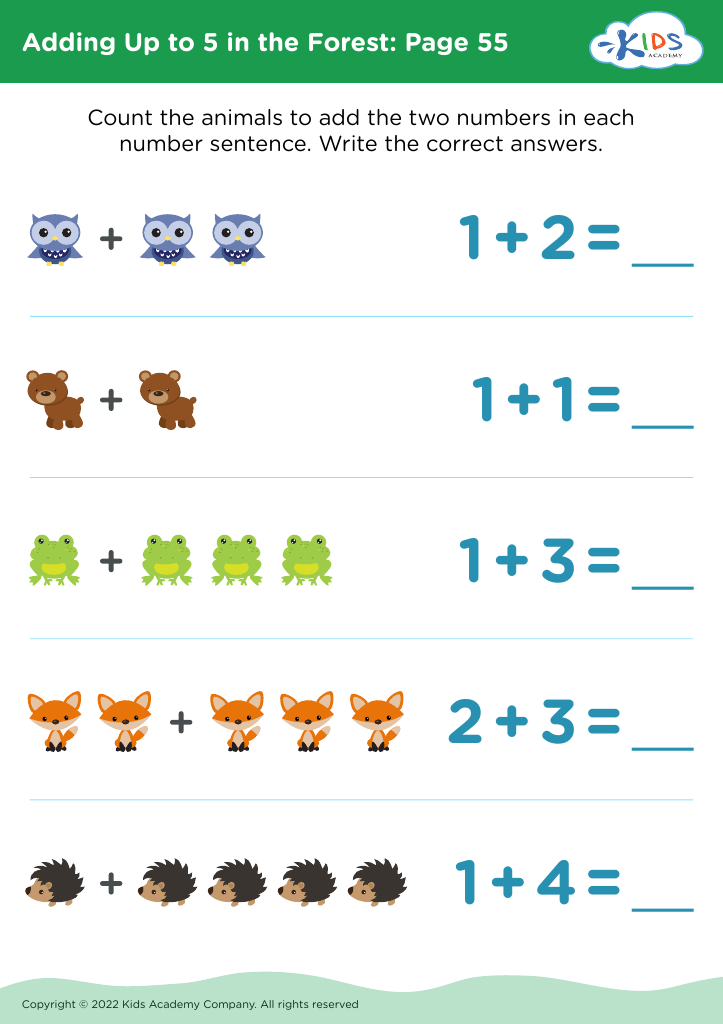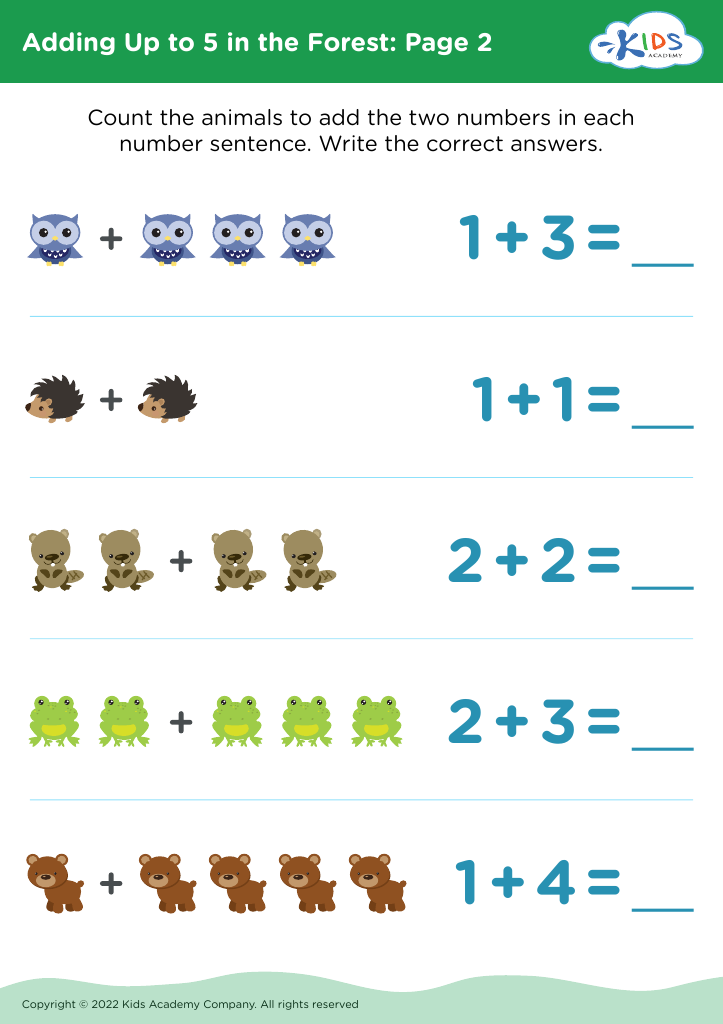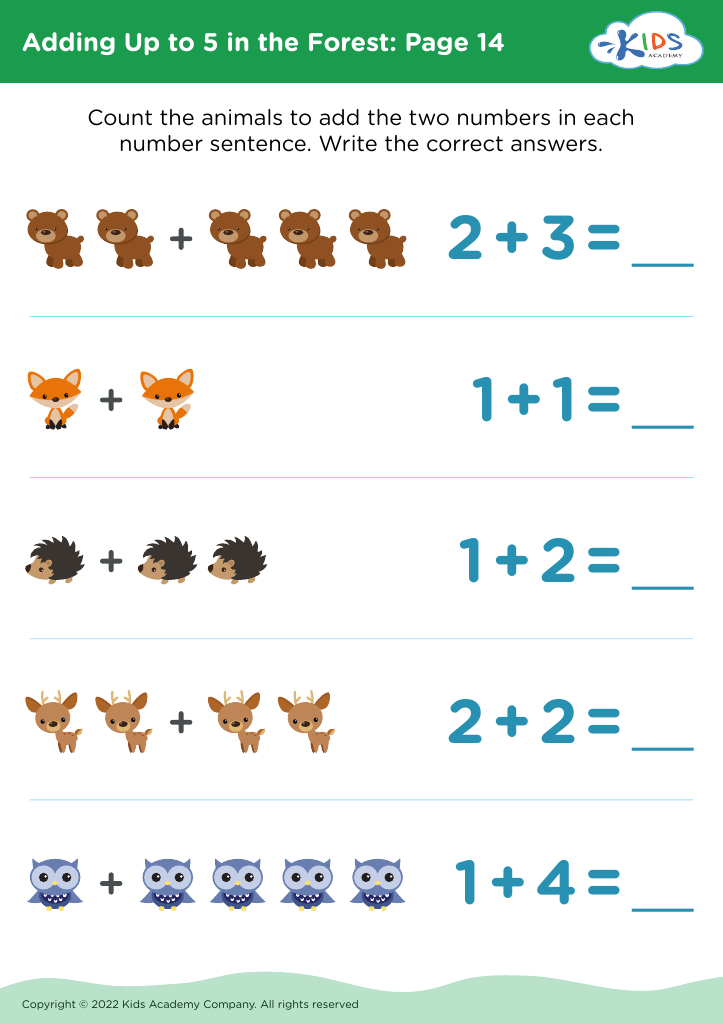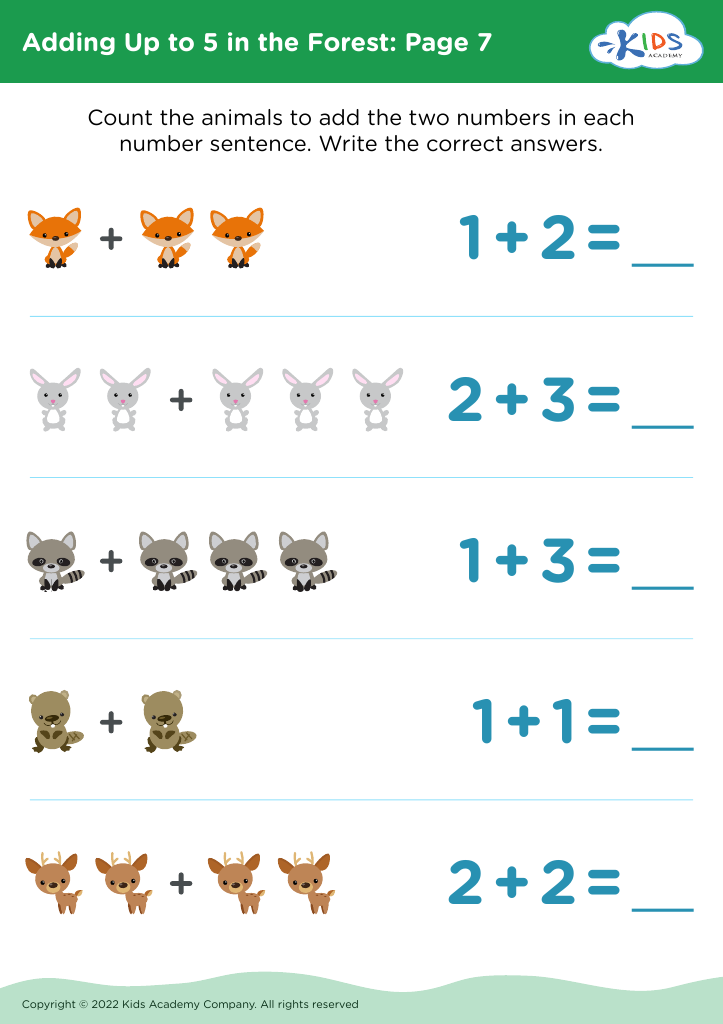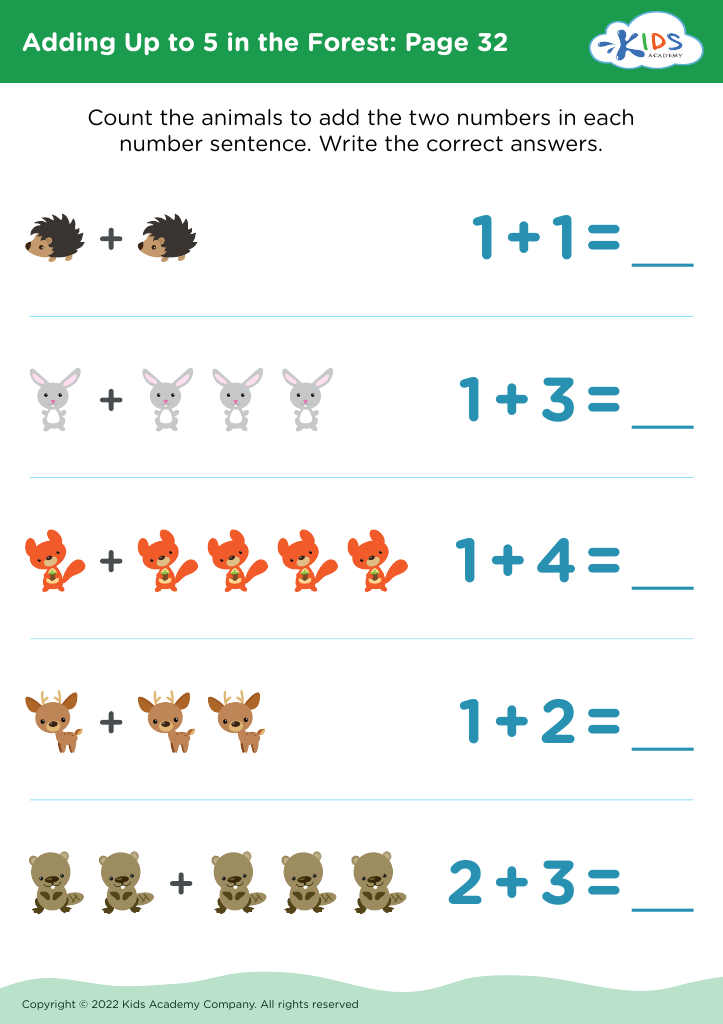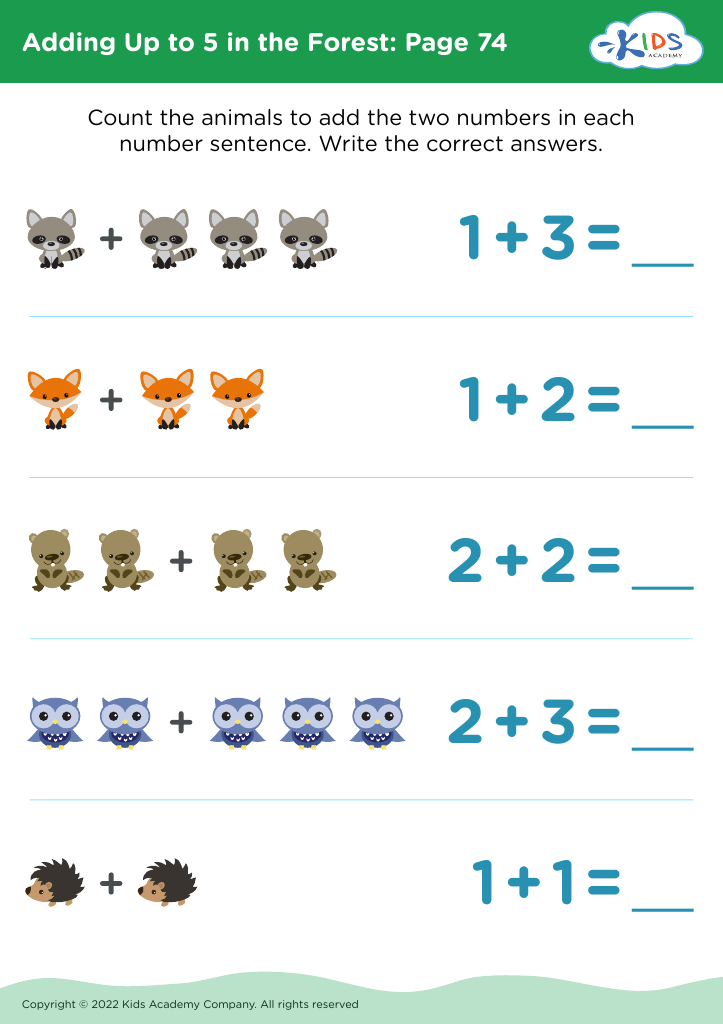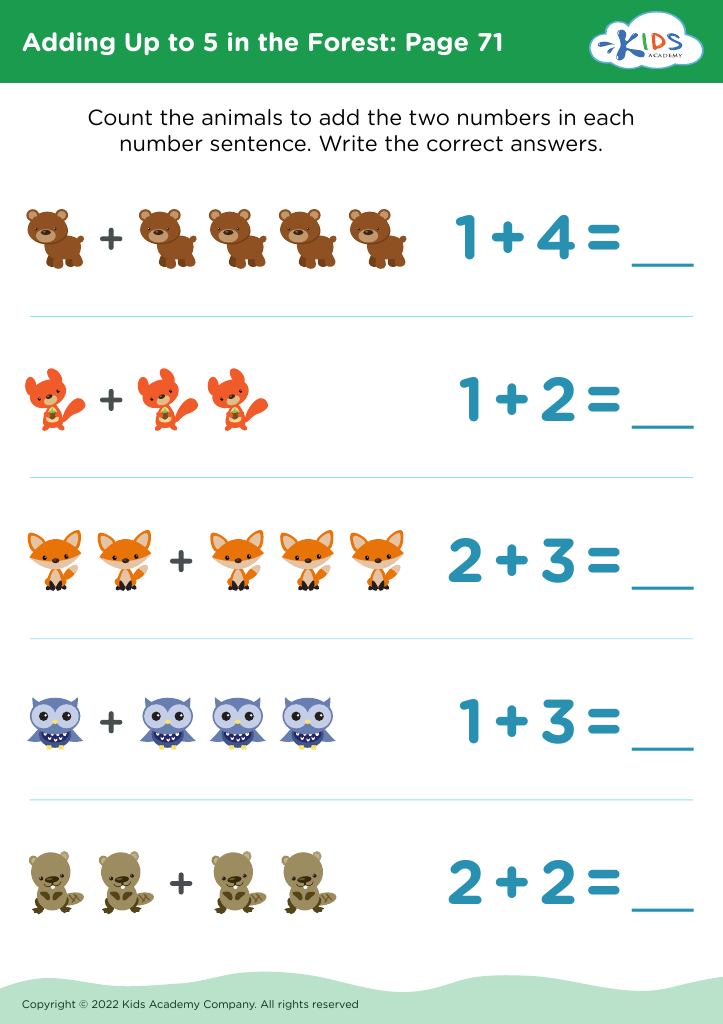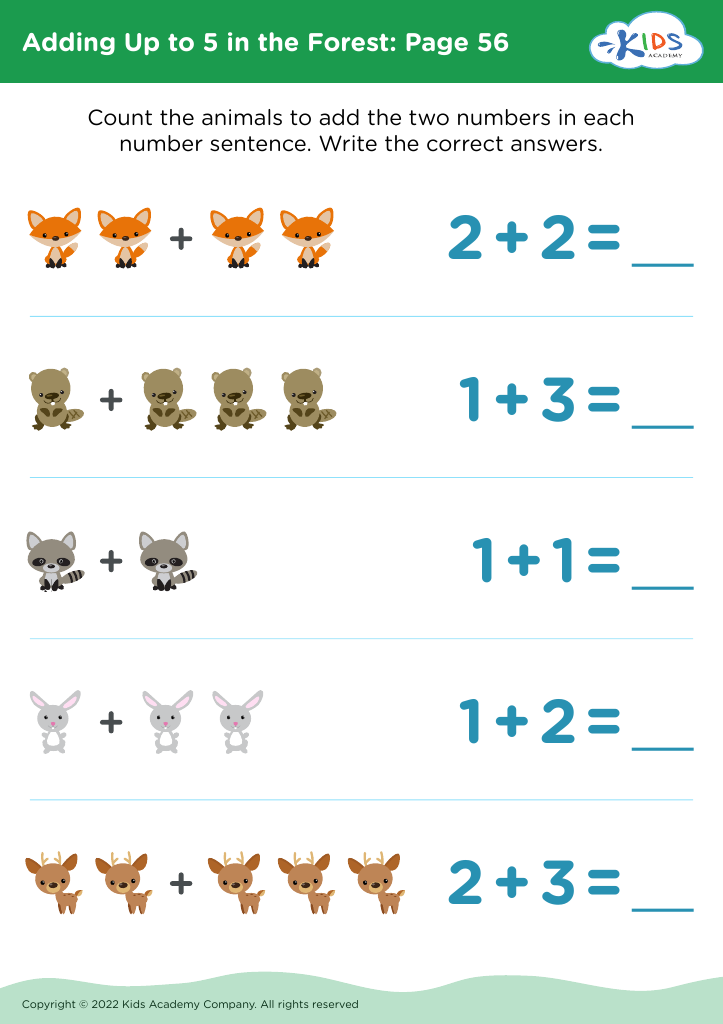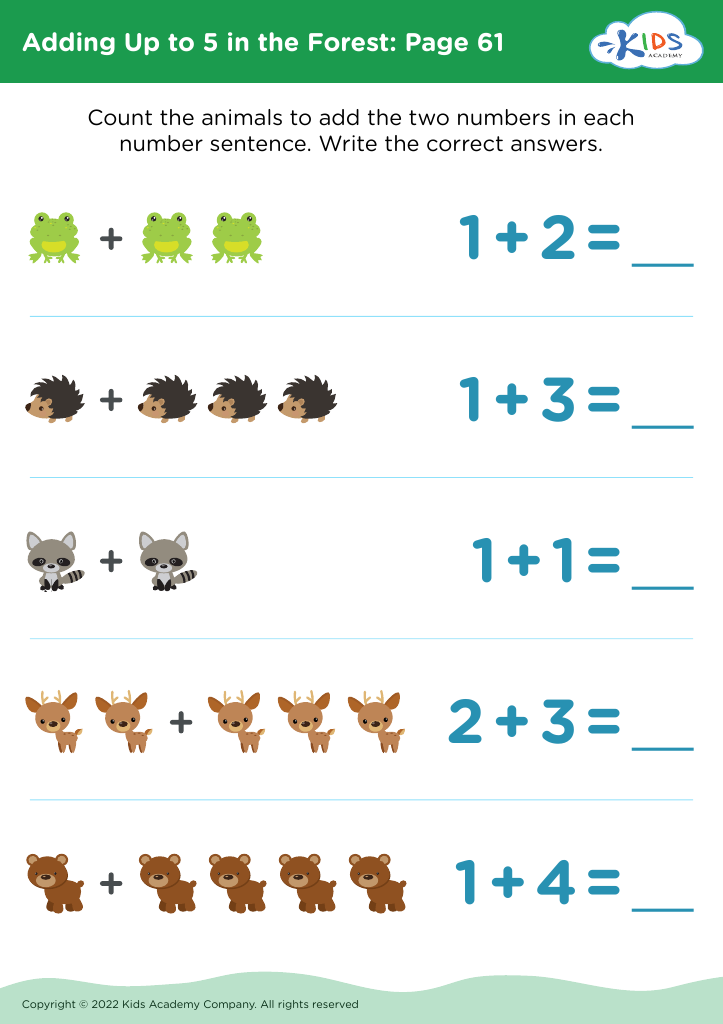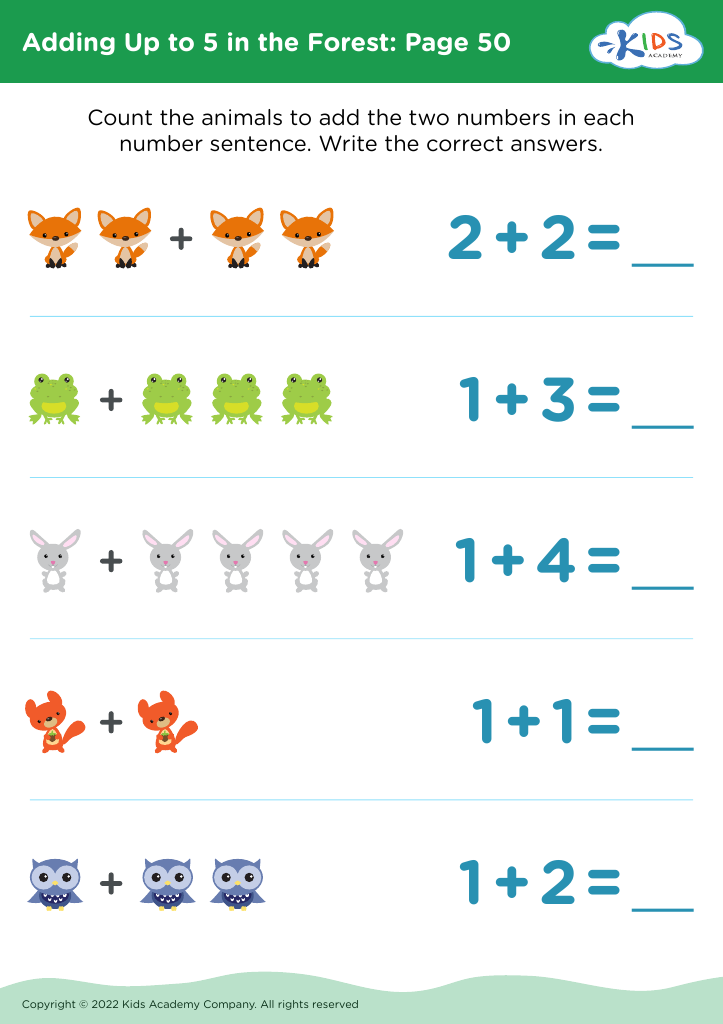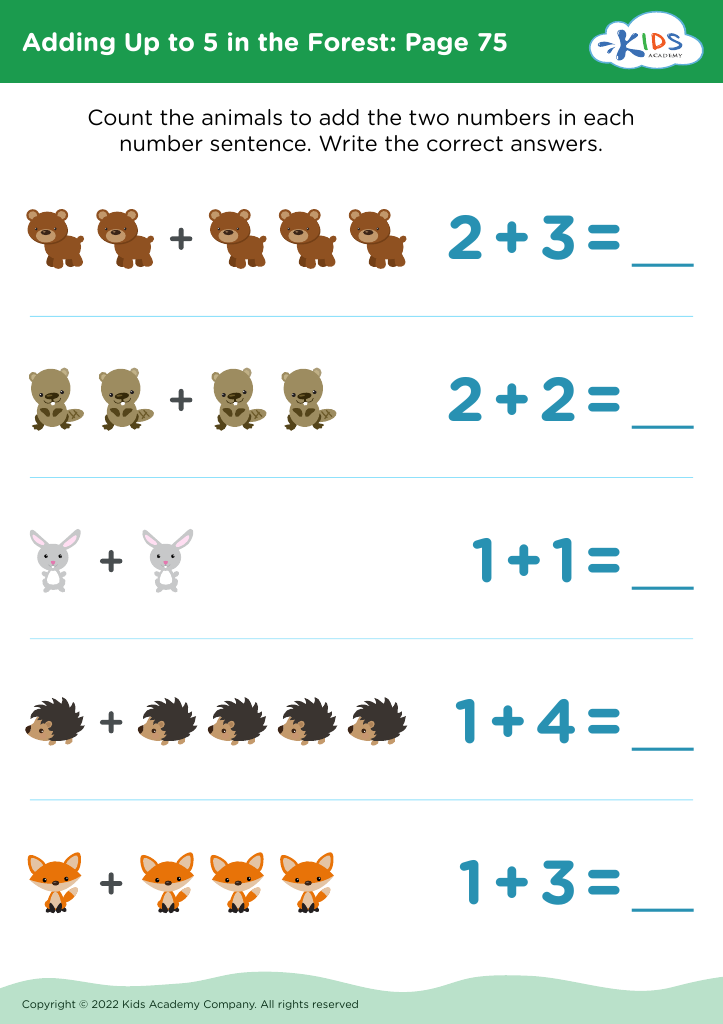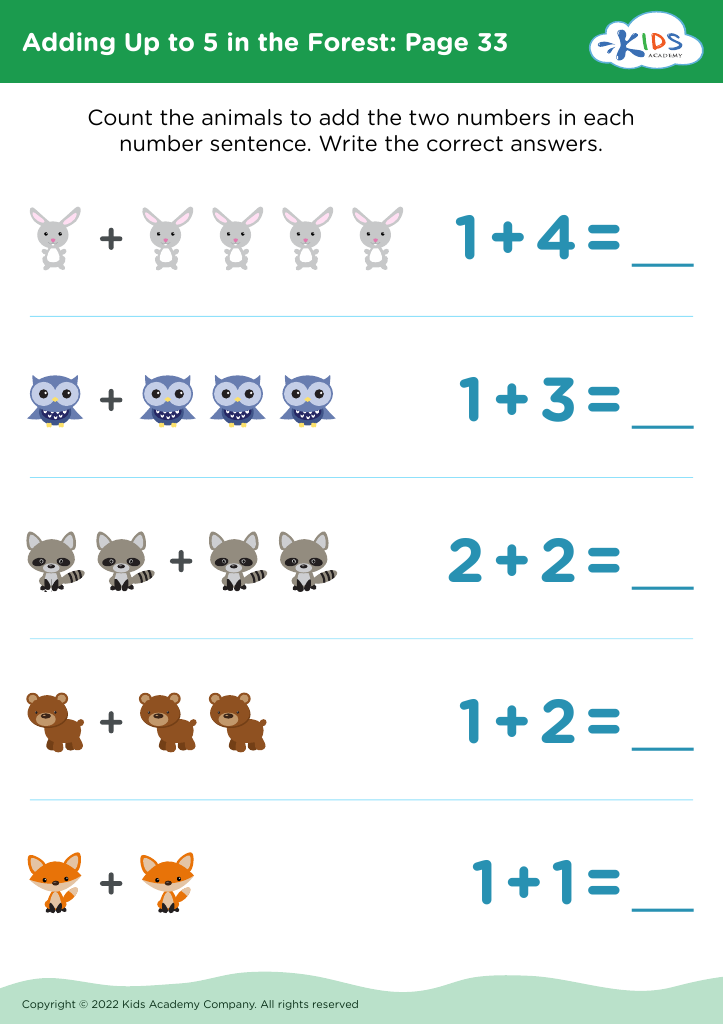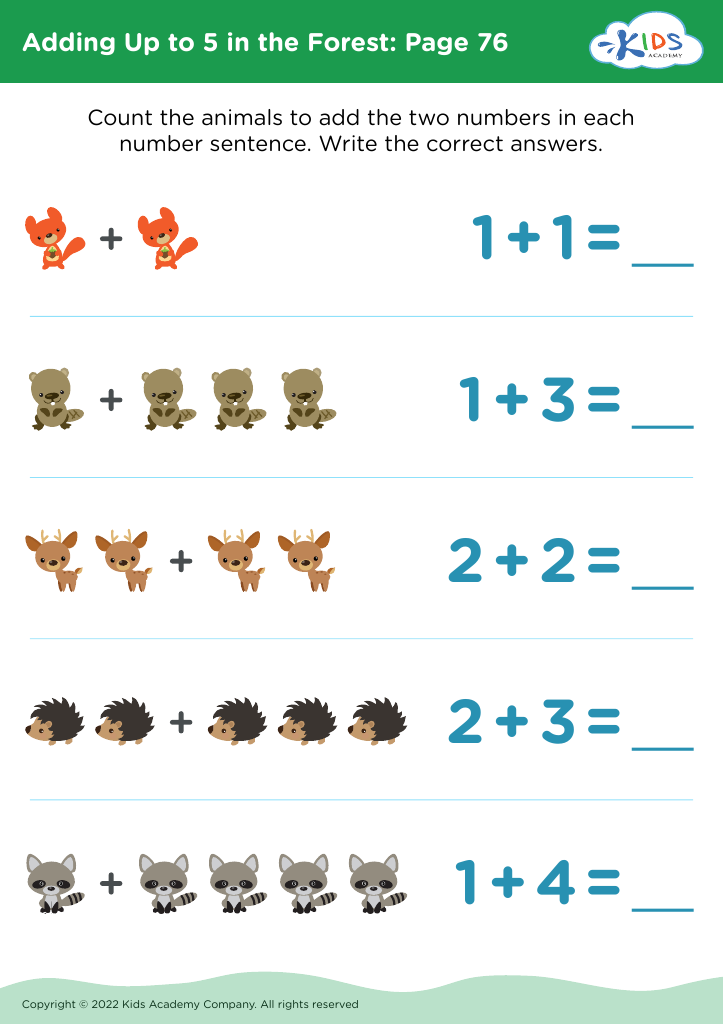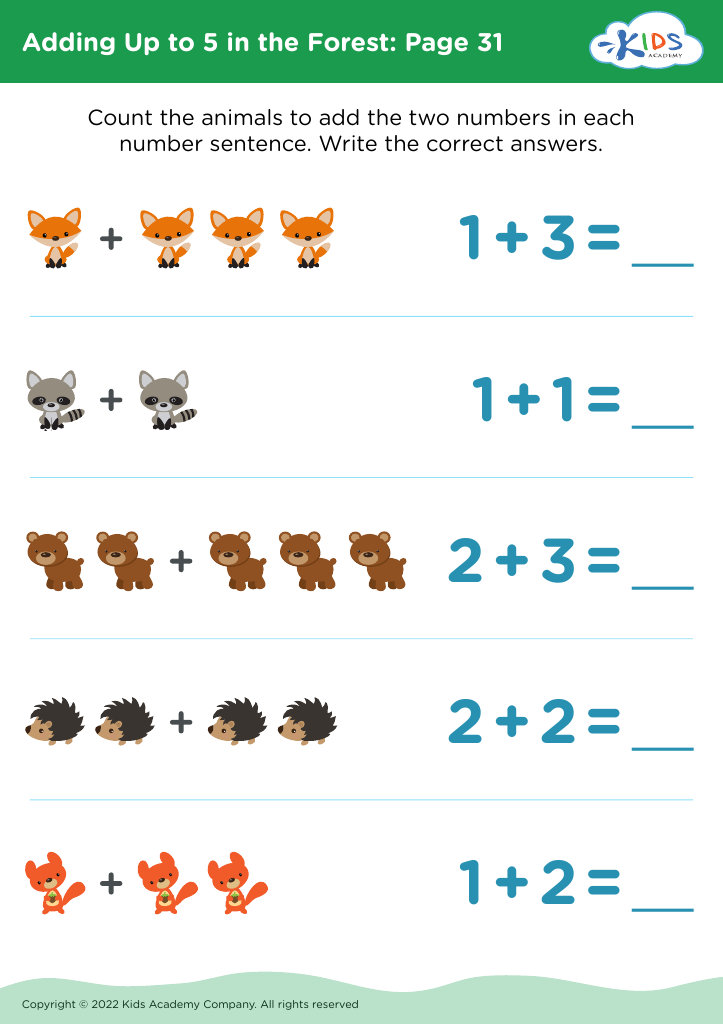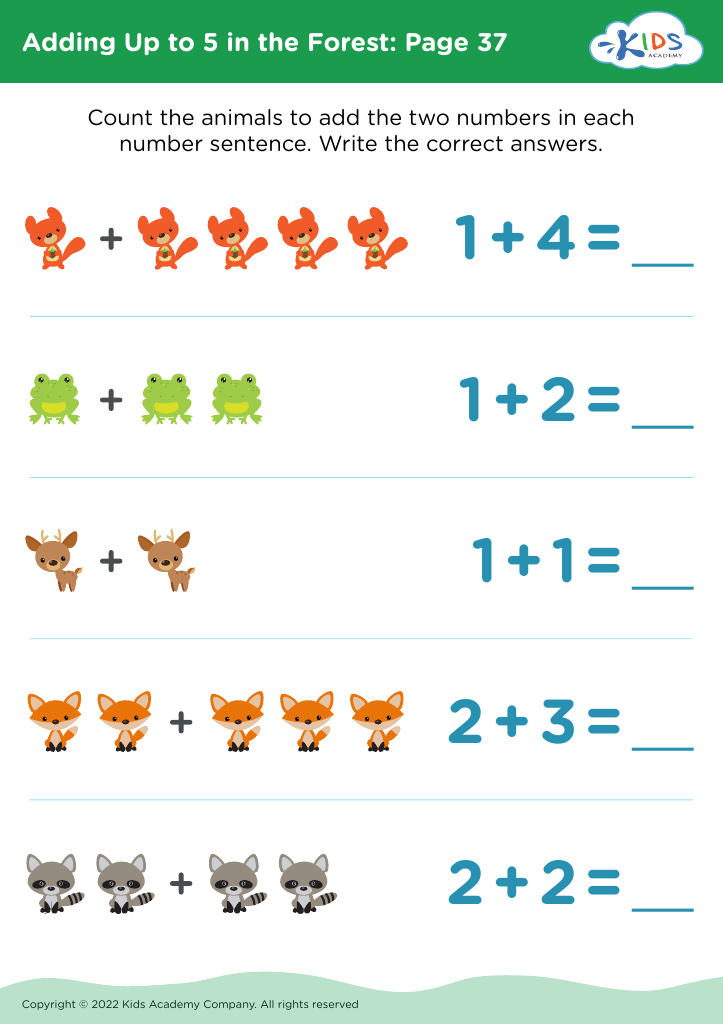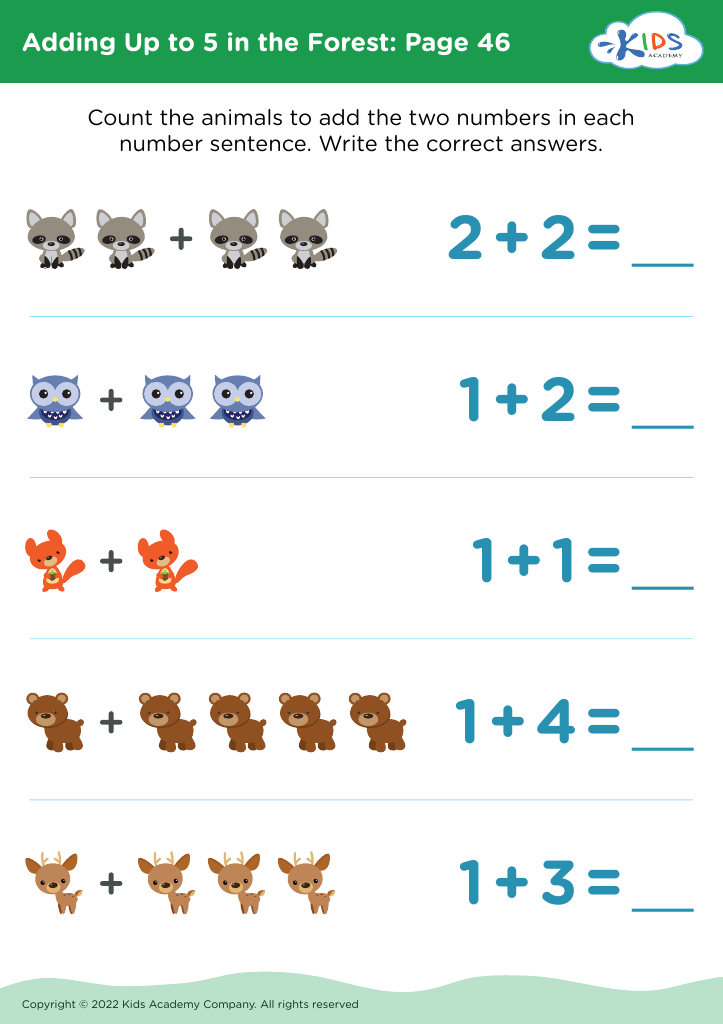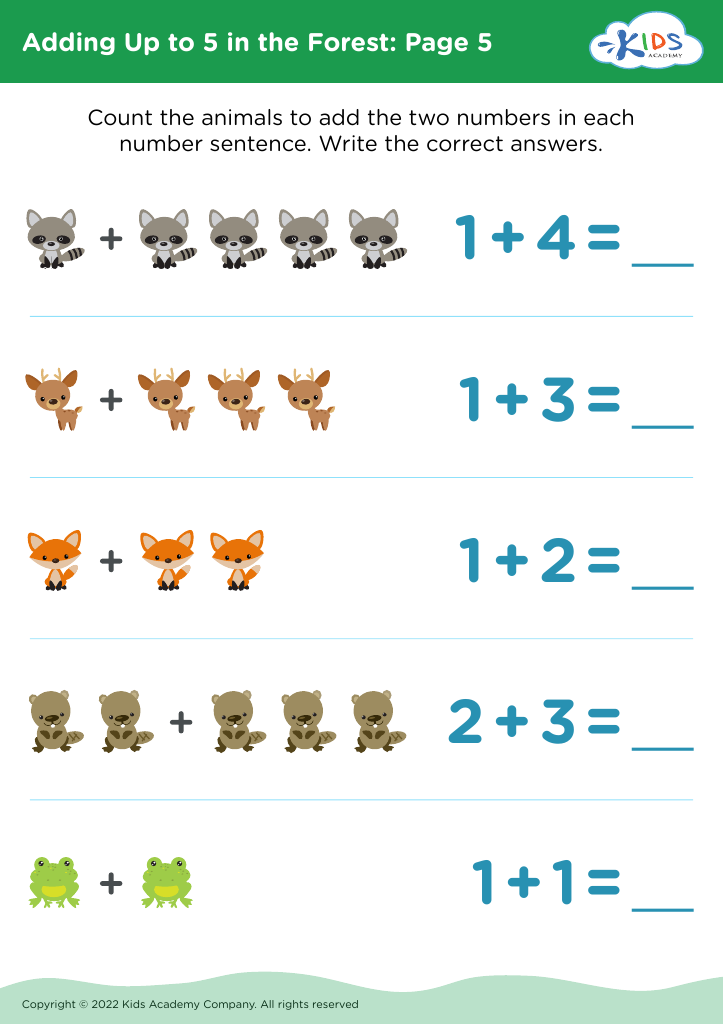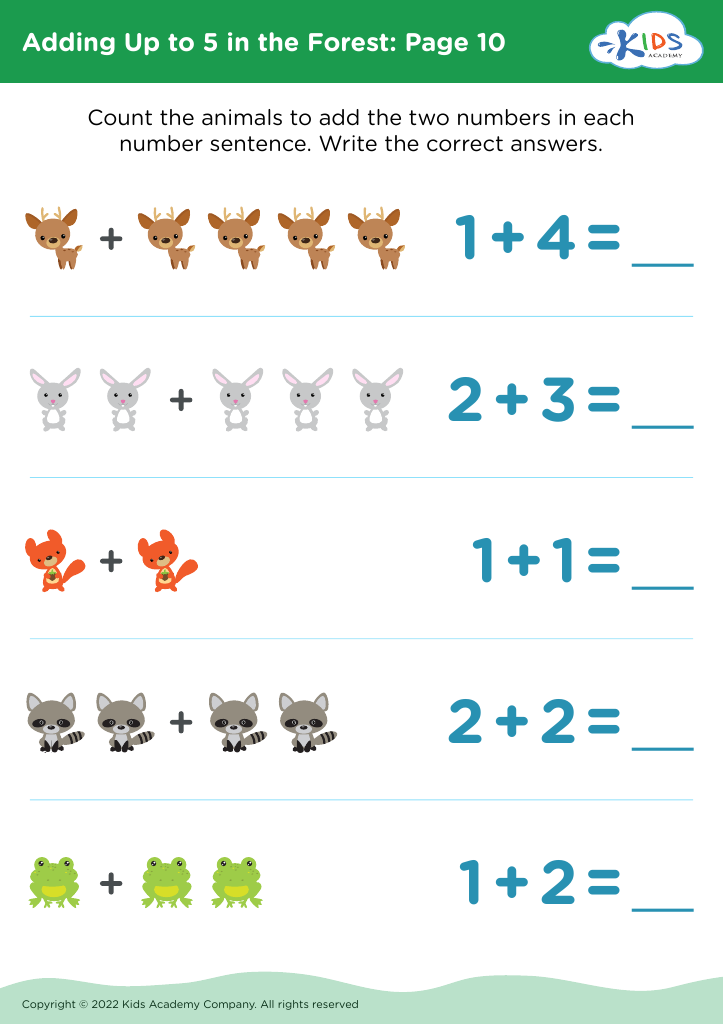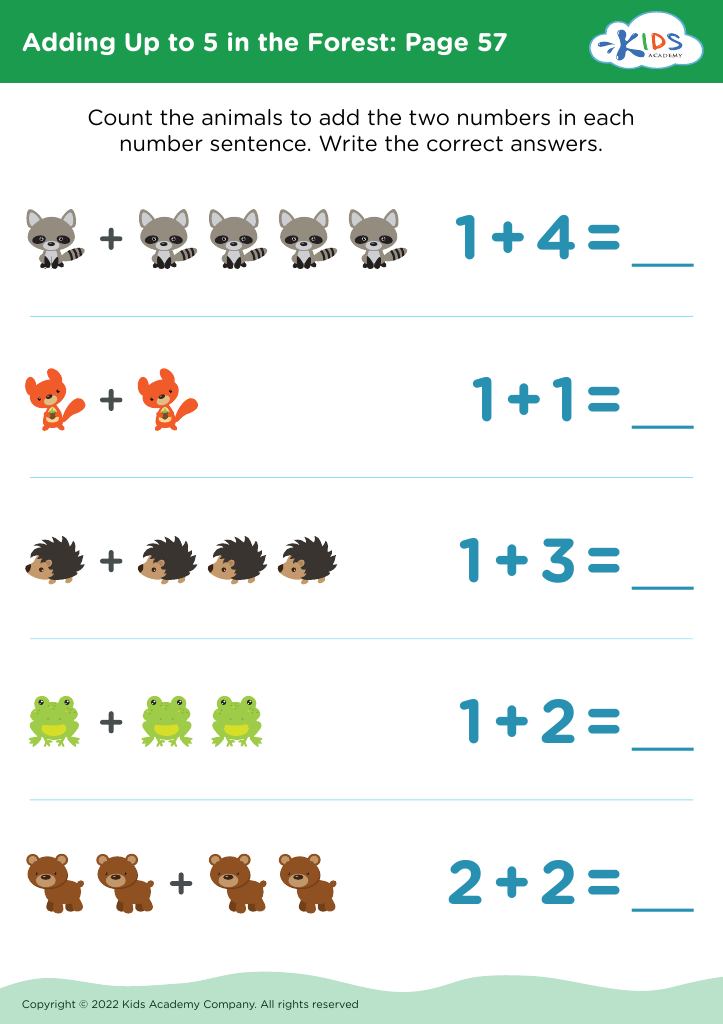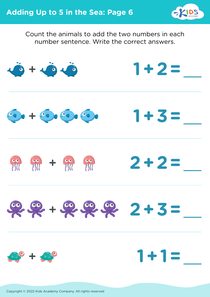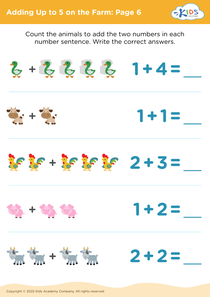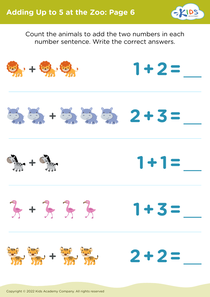Counting skills Adding in the Forest Worksheets for Ages 3-5
19 filtered results
-
From - To
Discover our "Counting Skills Adding in the Forest Worksheets" tailored for children aged 3-5! These engaging worksheets combine fun forest themes with essential math concepts. Designed to foster a love for learning, they introduce young learners to the basics of counting and addition in an interactive way. Each worksheet is filled with delightful illustrations and easy-to-follow activities that help children improve their counting skills while exploring the wonders of the forest. Perfect for at-home learning or classroom activities, these worksheets make math enjoyable and accessible. Ignite your child's mathematical journey today with our innovative and colorful resources!
Counting skills are fundamental to children's early math development and overall cognitive growth, making activities like "Counting in the Forest" essential for ages 3-5. This playful approach encourages children to engage with numbers naturally while fostering a love for learning. As they explore outdoor settings, such as forests, counting various elements like trees, animals, or leaves transforms learning into an interactive experience.
Parents and teachers should care about these skills because counting lays the groundwork for more complex mathematical concepts and enhances children's problem-solving abilities. During these formative years, children's brains are highly receptive to new information, making it an ideal time to build a strong numerical foundation. Additionally, counting activities promote fine motor skills through tactile interaction with natural objects.
Moreover, learning in outdoor settings allows for a multisensory experience, encouraging children to connect with nature and develop observational skills. This also promotes curiosity, creativity, and critical thinking. By investing time in counting activities in a fun and engaging way, parents and teachers are not only supporting early math skills but also promoting holistic development, critical for children's future academic success and lifelong learning.
